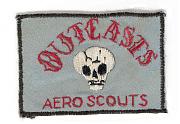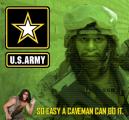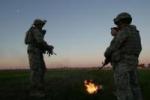I. Introduction: Penance and Purification
Warriors must not feel that they are stepping into an entirely separate moral universe when they enter a combat zone and that they will never be held accountable for what they do there. As Bernard J. Verkamp explains in his important work, The Moral Treatment of Returning Warriors in Early Medieval and Modern Times, in the early Middle Ages, Christian knights returning from war were required to do penance for acts committed during wartime that were seen as “sinful” (including injuring and killing other humans), even if the war had been judged to be a just war by the Church. As Verkamp explains:
[T]he Christian community of the first millennium generally assumed that warriors returning from battle would or should be feeling guilty and ashamed for all the wartime killing they had done. Far from having such feelings dismissed as insignificant or irrelevant, returning warriors were encouraged to seek resolution of them through rituals of purification, expiation, and reconciliation. To accommodate these latter needs, religious authorities of the period not infrequently imposed various and sundry penances on returning warriors, depending on the kind of war they had been engaged in, the number of their killings, and the intention with which they had been carried out.[1]
On the surface, this seems a bit unfair. You go off to fight a war in what the Church has declared to be a just cause, you survive the horrors of war, and when you return the Church wants you to do penance and ask forgiveness for what you have done? At first blush, this practice seems only designed to produce self-loathing warriors.
In fact, however, those who created the practice did not do so to punish warriors or make them regret their calling. They simply thought they understood what a warrior returning from war needs to do in order to transition successfully back into civilian life. Warriors need to recognize that what they did in service of their country was outside the norms of human existence and cannot be allowed in civilized society. The power of life and death that they were asked to exercise over others for the good of all must be relinquished (at least until they are called to war again). However necessary the evil in which they participated might have been, it was still an evil. By asking for forgiveness, warriors acknowledge that the rules that generally govern the social contract are valid and do apply to them. They accept ownership of their actions and symbolically ask to be allowed back into the fold of their community, released from the guilt of the acts they committed in the “fog of war.”
A vast array of cultures across the globe have understood the need for some form of spiritual cleansing and ritualized transition for the warrior passing from the world of war into the world of peace. In ancient Rome, the Vestal Virgins would bathe returning soldiers from the Legions to purge them of the corruption of war. In Africa, returning Maasai warriors had purification rites, and Native Americans of the Plains tribes conducted sweat lodge ceremonies for their warriors before they could rejoin their tribes.[2] Embedded in these rituals are essential lessons from history about what we need to do for those who have transgressed the moral lines of civil society in order to protect and defend civilization for the rest of us.















Bookmarks